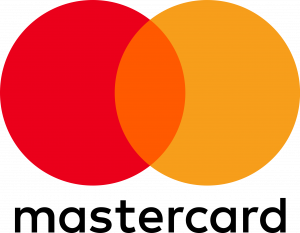The unprecedented turbulence seen over the past few years has left many people grappling with anxiety over their finances.
It’s a widespread problem. McKinsey research has revealed that households across the world are losing money fast; in the US and the UK, for example, over 30% said they’d seen a drop in income and savings.
And as inflation spirals, energy costs have become one of the biggest contributors to the cost of living crisis, largely due to a surge in wholesale gas prices. Ofgem has now warned that the price cap will likely increase to around £2,800 when it is next set in October 2022. And even that could now be an under-estimate.
Bill payers are on the back foot
Amidst these tough conditions, it’s no surprise that more customers are struggling to pay their bills. In Mastercard’s survey of leaders from the UK water and energy sectors, we found that four out of five billers believe COVID-19 has exacerbated the challenges with bill collections, and this will continue as the cost of living squeeze tightens.
Indeed, when asked about the biggest changes in customer behaviour following the pandemic, 67% of utility providers we spoke to said they had seen an increase in requests for bills to be paused or reduced and arrears to be reassessed.
At a time when people are struggling to make ends meet and pay their bills on time, the constant threat of fraudsters phoning or texting victims and impersonating one of their utility providers becomes an even bigger concern that needs urgently addressing.
This type of scam is known as authorised push payment (APP) fraud, and occurs when a criminal sends e-mails, texts or makes calls to an individual pretending to be from a service provider, such as their bank, or an energy supplier. They will normally tell the customer they have an unpaid bill and then pressure them, using threatening language or threat of legal action, to willingly transfer money out of their account to them. This type of fraud rose sharply during the pandemic, with a 71% increase during the first half of 2021, costing victims over £350 million.
In this complex landscape, energy and water companies have a fundamental role to play in delivering high-quality services that are both resilient and affordable. They must seek to better engage consumers through greater flexibility in payment channels, as well as protect vulnerable customers by streamlining billing services.
One of the sector leaders we spoke with recognised that utility companies have a responsibility to keep bills as low as possible. “To achieve this, we’re trying to move customers on to digital billing or to use email to direct them to their account on our website,” they said. “This cuts down on the use of paper and the opportunity for lost mail.”
Whilst the world of payments has changed dramatically in recent years, many billing processes remain inefficient and unclear. Greater predictability, flexibility and transparency will benefit everyone. Luckily, things are changing.
The next generation of bill presentment and payment
 In 2020, the UK’s national retail payments operator, Pay.UK, created a new framework to enable more flexible, secure and customer-focused ways for bills to be settled between people, organisations and businesses.
In 2020, the UK’s national retail payments operator, Pay.UK, created a new framework to enable more flexible, secure and customer-focused ways for bills to be settled between people, organisations and businesses.
Building on this critical framework, Mastercard’s Request to Pay service was the first of its kind in the UK. It works by connecting billers and customers directly to specifically facilitate the request for a payment and provides a secure communication channel to raise any questions or challenges the customer might have as part of the payment process.
The service can be integrated into an existing and trusted app, like that from a bank or utility provider, instead of requiring an external, less secure service like text or phone. “We’ve been doing some work with a couple of providers on the request to pay service,” said another respondent to our survey. “Essentially, that’s going through their banking app, but it feels like a journey with us.”
Request to pay has been designed to give choice and flexibility in how people pay their bills. Through it, customers can now choose to pay a bill straight away, defer, split a payment or query it. The service complements existing payments infrastructure, while improving communication and payment transparency. Despite it being a relatively new technology that is early in its rollout, a quarter of the utility providers we spoke to said that request to pay has huge potential over the next five years.
Billers benefit from a better ownership of customer relationships, which promotes an improved experience and increased retention. Payments are more easily traced, and knowing exactly when bills have been received and paid means it will be easier to identify those people who need help and additional support. It also improves reconciliation processes and gives businesses better transparency over cash flow.
By initiating a request to pay directly from within the service, billers can offer consumers not only a better level of service, but much greater security and reassurance over who they are speaking to, practically eliminating the risk of accidental payment misdirection and APP fraud.
At Mastercard, we are keen to play our part in providing people with safe, secure and convenient ways to pay. With our Request to Pay service, we can help do that, providing energy companies and other billers with a more effective and secure way of communicating with their customers, especially at a time when more people will be struggling and need support with paying their bills.
Find out more about Mastercard’s Request to Pay service.




